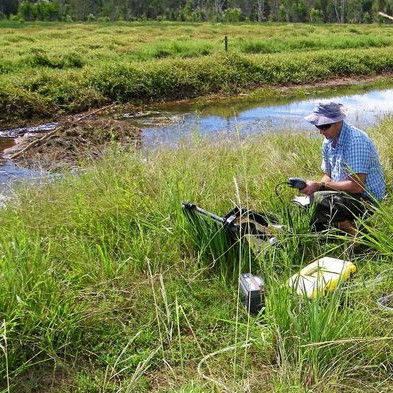Big push for river switch
 Experts are calling for an overhaul of river modelling and management.
Experts are calling for an overhaul of river modelling and management.
A team of international experts are calling for urgent global change in an article for the journal Nature.
One of the letter’s authors, La Trobe University ecologist Professor Nick Bond, says a change in river management is vital, with extreme weather events becoming more frequent and severe.
“This is something of a call to arms for a greater emphasis on assessing long-term risks and understanding how management decisions we make today might play out into the future,” Professor Bond said.
“While extreme events such as floods and droughts are an integral part of the natural variability that shapes river ecosystems, as they grow more extreme and frequent, the capacity for populations to recover may be more difficult.
“Understanding those risks and identifying potential tipping points requires a greater understanding of how populations are affected, not just by individual events, but by changing regimes.”
The University of Canterbury’s Dr Jonathan Tonkin says mankind can no longer solely aim to restore river ecosystems to historical or ‘natural’ states, because often, and increasingly, those states are themselves changing.
He says we are ill-equipped to tackle river management challenges because current tools no longer work amid increasing climatic uncertainty.
“The world is changing so fast that we risk losing the services that river ecosystems provide to society. We need to move on from traditional approaches to managing rivers, to tools that can anticipate future shocks and manage adaptively to protect valuable species and ecosystem services,” Dr Tonkin said.
Professor Bond said that while the necessary modelling approaches exist, they have rarely been used in river management.
“This is mainly because the necessary biological data is often lacking,” Professor Bond said.
“Such data are costly for scientists and agencies to collect. For example, measuring survival and reproductive success can take years to measure, and thus requires long-term funding and commitment.”
Dr Tonkin said new models of river management must be able to look into the future, where novel conditions are inevitable.
“We are losing freshwater biodiversity on our watch. The threats are stacking up, including from pollution, invasive species, and land-use change, and the amplifying effects of climate change,” Dr Tonkin said.
Dr Tonkin has called for rivers to be managed adaptively and for researchers to develop forecasting tools that move beyond simply monitoring the state of ecosystems to establishing the biological mechanisms that underpin their survival.
“The reason we want to look into the future is to anticipate future conditions and proactively manage against extremes to avoid collapses in populations or ecosystems,” Dr Tonkin said.
The experts want to see a greater uptake of adaptive approaches to managing river flows, and for greater emphasis to be placed on understanding the biological mechanisms by which species respond to rapid change.
Dr Tonkin said this would “allow for a scientifically robust basis for managing for resilience in rivers under climate change”.
“Rivers also need to be managed for people, so we have a major task ahead of us, requiring collaboration between scientists, conservationists, water managers, and policymakers.”







 Print
Print